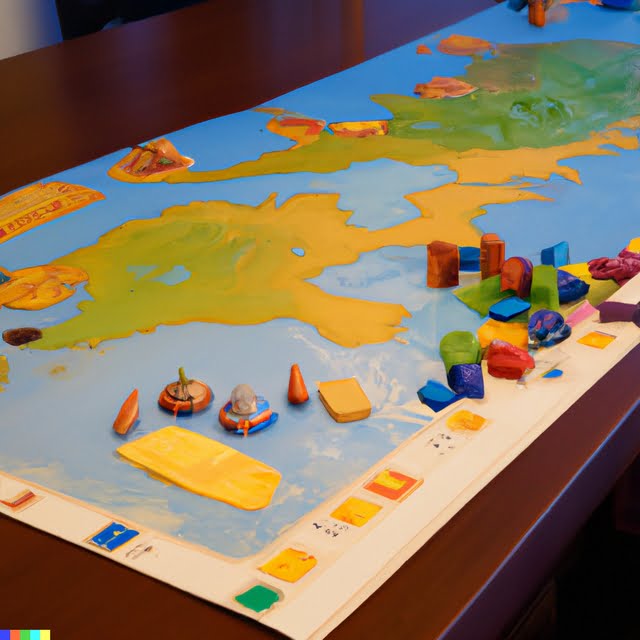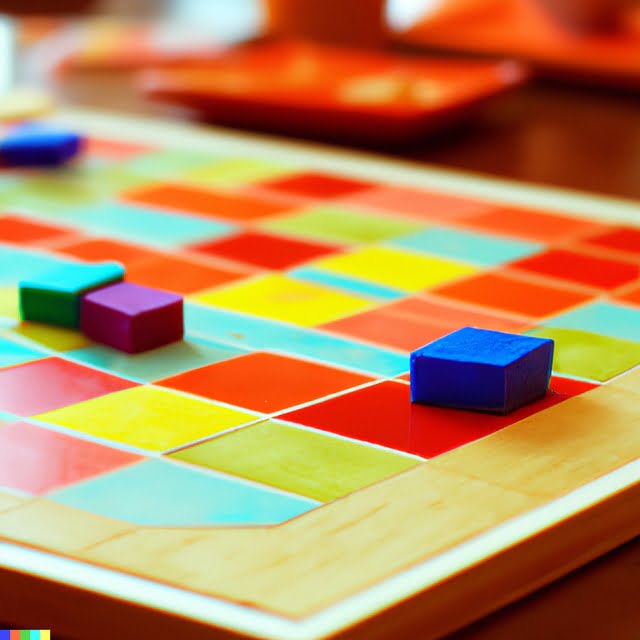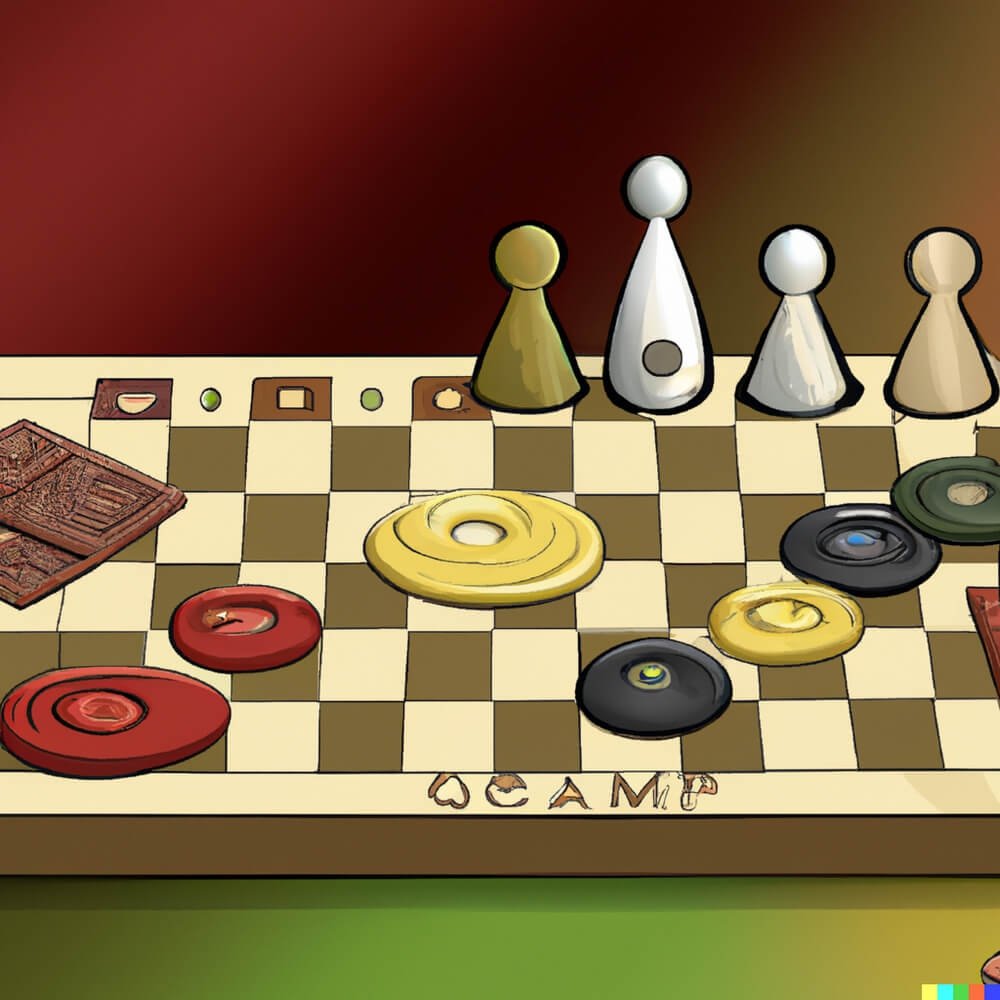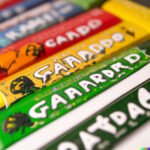Introduction
Playing board games with toddlers can be incredibly rewarding for everyone involved. Board games provide a great opportunity for young children to learn skills and concepts, improve their cognitive and motor development, build problem-solving abilities, practice social interaction, and even develop greater math and language skills. The best board games for toddlers vary depending upon their age range, but generally it’s important to look for simple games with few rules that will still provide plenty of fun.
Benefits:
One of the key benefits of playing board games with toddlers is that they help foster self-regulation. By mapping out a play space and establishing basic game rules such as taking turns, waiting patiently before making a move, following certain instructions etc., children learn to take control of their own behavior rather than relying on adults who often end up providing excessive guidance when toddlers don’t follow the expectations. Playing together also encourages children to work on developing communication skills such as using polite language, negotiating conflict resolutions or simply just learning to say “thank you”.
Board games also teach children about numbers and counting which is an important foundational skill for later math abilities. Smaller, age-appropriate sets help them develop fine motor skills as well as eye hand coordination since most toddler board games require small physical elements such as picking up pieces or sliding tokens around a game board in order to track points or make moves. Additionally, by participating in turn-based activities like playing board games with your toddler fosters a sense of collaborative play which is integral for problem-solving skills to emerge over time. Last but not least, since young children tend to find shorter activities more calming and manageable than longer ones; playing board games with them can be an effective way to distract them from any stressors they may encounter throughout the day while helping parents keep productive company.
Choosing the Right Board Game for Your Toddler
When choosing board games for your toddler, it is important to consider the age and developmental stage of your child. By making sure that they are age-appropriate, educational and enjoyable, you can foster a positive game-playing experience for your child. Look for games with simple instructions and clear rules. Games of chance such as “Chutes & Ladders” or “Candyland” are excellent choices since these games require minimal skill but still provide an enjoyable and fun playing experience for toddlers. Building sets such as blocks, jigsaw puzzles, peg boards or shape sorters are especially helpful in teaching sorting and counting skills. Memory and matching games help develop problem-solving abilities as well as basic memory skills in young children. Finally, cooperative play activities such as singing or dancing together enhance social skills like sharing and turn taking while also reinforcing language development. Each type of game has beneficial attributes that stimulate cognitive growth while providing valuable time spent with family members or caregivers.
Developing Social Skills Through Board Games
Board games can be a great way for toddlers to learn skills such as taking turns, interacting with others, developing patience and practising problem-solving. Playing board games with toddlers encourages them to co-operate and think in new ways, while having fun. By seeing how their actions affect the game’s outcome, toddlers will begin to understand the ideas of cause and effect. Partaking in such activities also helps to boost their self-esteem and teaches about the importance of getting along in social situations.
Playing board games with toddlers can be beneficial in terms of encouraging communication and language development too. Children learn from sounding out words when playing certain learning games, which helps them improve their reading ability. Asking questions during play is also an effective tool for building up comprehension and pronunciation skills. Additionally, playing board games also gets children used to understanding instructions, engaging in conversation and participating as part of a team – all essential social development attributes.
Furthermore, board games present educational opportunities that work well with a toddler’s short attention span. Games like Candy Land or Chutes & Ladders involve colorful pieces which demand a toddler’s absolute focus while they pick up basic counting skills among the pieces ” not only helping their cognitive development but also showing an appreciation for colors.. Games such as Memory help them understand sequence while teaching matching skills and alphabet letters introduce vital literacy skills while helping them recognize shapes within pictures – all of which are processes that further aid social development .
Easy Board Games for Toddlers
Chutes and Ladders: Chutes and Ladders is one of the most popular board games among toddlers. The game includes a colorful game board with chutes and ladders, along with a selection of pieces to move around the board. The aim of the game is for players to move their pieces up ladders in order to reach the top faster than any other player. As toddlers navigate the colorful path on the game board, they can learn numbers, colors and taking turns.
Candy Land: Candy Land is another popular choice for toddlers. It’s full of bright colors that are sure to keep children engaged throughout gameplay. With no reading required, it’s a great introduction to gaming for very young children. Two to four players can compete on small path cards that weave through different magical lands until someone reaches King Kandy’s castle first.
Trouble: Trouble is an ideal game for two to four year olds as it features simple mechanics and encourages social interaction between players”a helpful skill that sets young kids up for success with cooperative games later in life! Players take turns popping a plastic bubble in the middle of the gameboard that advances their color-coded pawns around a unique racetrack-style track towards the center space “Agreeable Alley.” The first player or team of players to land all four of their pawns safely in Agreeable Alley wins!
Understanding Your Toddler’s Interests to Motivate Playing Board Games
For parents looking to stimulate their toddlers’ cognitive development and social skills, board games are a great tool. Selecting the right game for your toddler’s age and interests is important for having a successful and enjoyable experience for both you and your little one. If a game fits their interests, toddlers will be more likely to stick with it when things get difficult or challenging.
When selecting board games for toddlers, consider their specific interests. Perhaps they love making art or playing dress-up; find a game that allows them to do this in an engaging way that encourages learning. Additionally, look for educational elements such as colors, numbers, animals or shapes ” all of which can aid cognitive development and reinforce basic problem solving skills. Many of these games come with extra pieces such as cards and dice to help keep the game interesting every time you play.
Apart from helping children learn while they play, board games also teach important life lessons such as taking turns, following rules and coping with difficult setbacks if they lose the game. No matter what type of game you decide on, take the time to explain it thoroughly before the game starts so that the rules are clear from the beginning – this will help eliminate any misunderstandings during gameplay. Moreover, don’t forget that board games should be fun above all else; encourage your toddler by providing positive reinforcement whenever possible instead of harping on mistakes or focus solely on winning or losing. By finding ways to help motivate toddlers to enjoy playing board games ” even if it’s at times a struggle ” parents can create valuable learning experiences as well as lasting memories!
Scaffolding Strategies to Promote Learning Through Board Games
Board games are an excellent way to introduce toddlers to a variety of important learning concepts. It is important to develop scaffolding strategies that both encourage the child’s learning through the game while also making them feel successful and capable at the same time. Scaffolding is defined as offering just enough guidance and support in order for a toddler to be able to complete a task independently, with confidence and success. Here are some tips for scaffolding board games for toddlers:
1. Aim for short play sessions with your toddler and space out game time rather than overdoing it. Start by playing easy-to-understand games such as Simple Snakes & Ladders or Connect 4.
2. Break the rules down into simpler ones focusing on turn-taking, counting and colour matching if appropriate, highlighting these skills gradually as the game progresses; rather then trying to overload the toddler all at once with too much information about rules and strategy! Encourage your toddler even when they make mistakes, emphasizing this is a part of the process of learning how to play a new game.
3. Demonstrate patience and non-verbal guidance, like pointing or moving pieces on their behalf if needed, but aim to let them take control whenever possible by gently guiding them along without giving too much away or completing tasks they should technically be doing themselves ” remember it’s their turn!
4. Finish each session with a positive message so your toddler develops confidence playing board games; ‘you did really well today’ or ‘you remembered lots more than yesterday’ could be said after every game session and serves as great encouragement for future sessions!
Creative Ways to Extend Board Game Fun for Toddlers
When playing board games with toddlers, it’s important to ensure that the game doesn’t become too long or tedious for their short attention span. To do this and help extend the fun of the game, there are several creative ways you can entertain your toddler while they play.
One way to keep your toddler entertained is to assign a special job that rotates each round. From being in charge of handing out pieces or rolling the dice to sorting tokens on the board, these easy tasks will help engage them in each turn. If desired, you can also make up a song about what their job is for your little one to sing as they work.
Adding homemade stickers as rewards at various points throughout the game is another great idea. After achieving a goal of filling spaces or crossing off items from a list, surrendering a sticker sporting an image of their favorite character can be extremely motivating and entertaining for your toddler’s age range.
For older toddlers who may be able to recognize letters and numbers, you can let them make up simple stories about letter and number combinations drawn during gameplay – for example “The cat wanted 3 fish before he could go on his journey” – which may distract them enough to stay interested until game end. Ultimately, by trying different activities while they learn how to hold attention longer, playing board games with toddlers will be both fun and beneficial!
Conclusion
Board games have many benefits for toddlers. Learning real-life concepts and interacting with other children are among some of the key advantages from playing board games with toddlers. In addition, the important rules of socialization and turn taking can be learned during game play, which has a lasting impact on the development of their social behavior. Allowing a toddler to participate in board games will provide them with an opportunity to extend their language use, improve their fine motor skills, practice problem-solving techniques and sharpen their decision-making abilities. Through playing board games together, parents can also take part in quality time activities that create memorable bonding experiences for both parent and child alike. Board games for toddlers are an evident way to learn, grow, and most importantly – have fun!

I love playing all kinds of games – from classics like Monopoly to modern favourites like Ticket to Ride.
I created this blog as a way to share my love of board games with others, and provide information on the latest releases and news in the industry.





